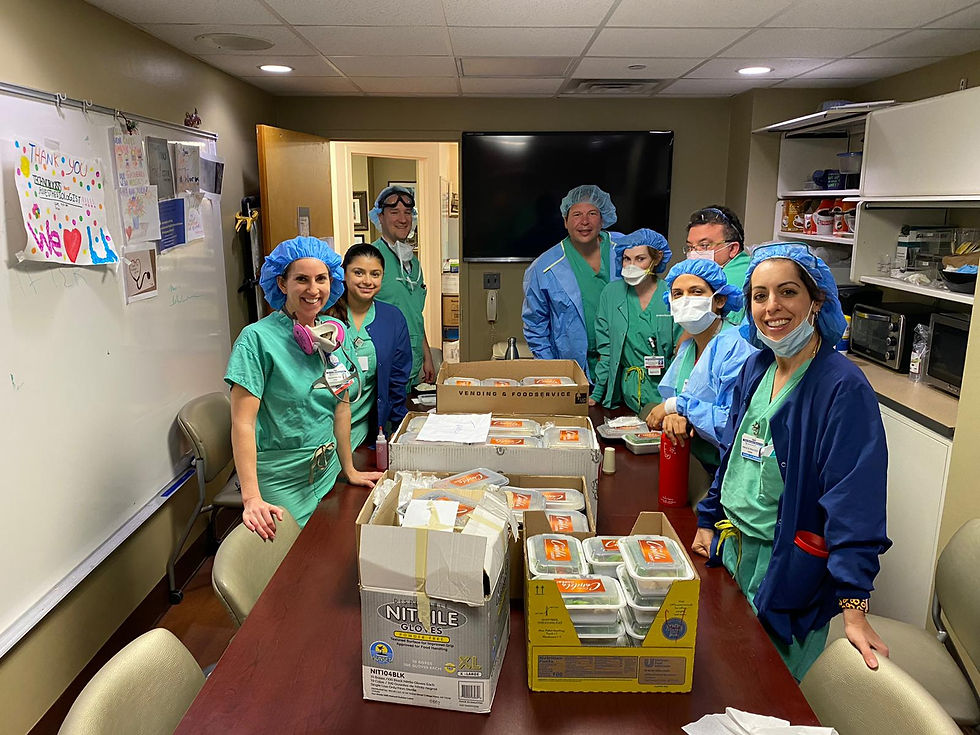Hard Decisions
- Daryl Fenio

- Apr 28, 2020
- 3 min read
During my ICU shift, two patients died today. Both patients were DNR, do not resuscitate. Their families had made the decision that should their loved one's heart stop, or blood pressure became critically low, they did not want the ICU team to perform chest compressions, or give an escalation of medications to restart the heart. I'm sure these where terribly difficult decisions for each family. In one case, I had personally spoken to the family the day before and they understood it was likely their father, brother, husband would not survive and made the decision to change his code status from full code, do everything, to DNR. I think this is a very brave decision. Sometimes I think families equate DNR to saying they don't love their loved one enough to have the ICU team do everything. That couldn't be further from the truth. When a patient is dying and likely has little chance of survival, even if we perform, chest compression, shock the heart, escalate medications, I think making the decision to let the patient to pass away without us performing chest compressions, etc. is compassionate.. Not only compassionate for their loved one, but also compassionate to the ICU team. These codes on patients that have so little chance of survival, is not only brutal on the patient but also brutal on the ICU team. Of course, I'm not talking about every patient in the ICU, I'm referring to the subset that are so critically ill, on maximum medications to maintain their blood pressure, often on dialysis because their kidneys have failed, requiring 100% oxygen. I'm glad our team was just able to stand by the bedside of these two patients, hold their hand, and let them pass away.
On a more positive note, two of our patients were able to get off the ventilator and breath on their own. The decision of when to try and remove the breathing tube and have the patient breath on their own, is difficult. Both these patients had been on ventilators for over two weeks. We spend days trying to wean down their need for the ventilator. Decreasing their oxygen requirements as tolerated, allowing the patient to do some of their own breathing while still on the ventilator, and reducing their sedation to a level that they will be awake enough to breath on their on when the breathing tube is removed. Once the patient is at that point, you have to make the decision whether this is now the time to remove the breathing tube. It is scary. As the physician, you're making the decision to take the patient from a place of relative stability, with fairly low oxygen requirements, low mechanical ventilation settings and remove the breathing tube that has allowed them to be mechanically ventilated. It's very possible once the patient is removed from the ventilator they might not be able to maintain their own breathing. If that is the case you have to make the decision to either maintain there breathing with noninvasive measures, i.e., Face mask oxygen, CPAP or put the breathing tube back in place and return the patient to mechanical ventilation. That decision sometimes is made over hours as you watch the patient closely or sometimes becomes an emergency if the patient decompensates quickly after removing the breathing tube. I try to be as thorough as possible, having all necessary equipment available before I extubate the patient. I have a respiratory therapist at the bedside, several nurses, a scope to replace the breathing tube if necessary, several size breathing tubes, a CPAP machine near by, but then you just have to remove the tube and hope you've made the right decision. Theres always the chance, particularly with patients that have had a breathing tube this long, that if you need to replace the breathing tube, you won't be able to because of swelling in the airway. If thats the case, the patient will die, so this is not a decision made lightly. I removed the breathing tube from both of these patients, one required a little extra help with CPAP. The other patient only required facemark oxygen. I hope they will have remained off of the ventilator when I call to check on them tomorrow.






Comments